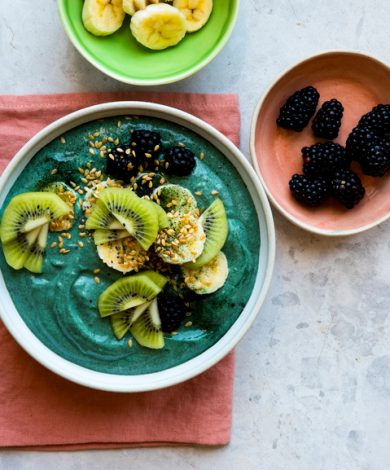After months of anticipation, the baby is finally here and it’s a sacred time for…
Nutrition
Feeding Multiples? 4 Practical Postpartum Nutrition Tips From a Dietician & Twin Mom
November 22, 2021 • By Judy Singer

Your body spent the last 10 months growing and nourishing multiple humans. And then you birthed them. You are a queen, a warrior, and most likely, utterly exhausted and depleted.
That depleted feeling makes sense, not just because you just went through the marathon of bringing these babies into the world, but because your body prioritized their nutrition over yours ensuring they grew and developed normally.
Add in breastfeeding or pumping, and this trend continues. This is why it’s SO important for mamas of multiples to ramp up your nutrition and calories. Otherwise, you’ll always feel like your reserves are low and your body is totally run down.
Here’s the wide angle view of your nutritional needs postpartum:
Calories: Moms exclusively breastfeeding one baby need an additional 500 calories per day on top of their normal calorie requirements. But if you’re breastfeeding multiples, you’ll need about 500 additional calories PER KID (this decreases to ~400 calories per day per kid after the first 6 months). This is roughly the same as your energy needs in the third trimester of pregnancy. Of course each mama’s exact needs vary based on weight, activity level, and breastfeeding frequency.
If you’re not breastfeeding or pumping exclusively, your energy needs will be lower, but now is not the time to restrict calories. Eating a low calorie diet will make it difficult to consume all of the nutrients you need to recover from giving birth AND create adequate nutrition for your babies. Plus, it can be a blow to your milk supply if you are lactating. Need a snack that packs a punch? Click here.
Hydration: Water is essential to all of our bodily functions and if you’re breastfeeding or pumping it’s especially important. Remember that breastmilk is made mostly of water, so you’ll need to drink plenty of fluids to maintain your supply. Again, it’s a double whammy for moms nursing multiples.
Even if you’re not nursing, hydration is essential for transporting nutrients and regulating your body, both super important while your body is recovering from birth. Plus, dehydration can cause fatigue and low energy, and let’s be honest, you CANNOT have something else making you tired right now. Invest in a large water bottle and keep the refills coming. This drink takes hydration to a whole new level and this drink powers up your lemon water big time.
Nutrients: There are many vitamins and minerals important to your birth recovery, lactation and overall health. Just as in pregnancy, it’s a good time to continue a high quality multivitamin to ensure you’re not falling short. We could get into the nitty gritty of all the important vitamins and minerals you need (Iron, B12, DHA, Choline, Zinc and Vitamin D to name a few), but it’s usually not super helpful to think about eating in terms of micronutrients, since we eat whole foods that are all made up of a variety of components. So instead, let’s just focus on eating a wide variety of (mostly) fresh foods that you enjoy. Looking for recipes to support your postpartum nutrition needs? Click here for nourishing meals.
Taking the time to take good care of yourself postpartum can help you recover faster and maintain your energy level (which we know is constantly being challenged by babies throwing ragers at 2am).
Since I know finding time for yourself in the early days with twins, triplets or more is hard AF, here are some practical tips that will help keep your nutrition on track:
When you don’t have a hand, drink through a straw. Forget one handed snacks, your hands are full of babies! Get that blender a permanent spot on your counter and buy yourself a reusable straw. Smoothies and soups pack a nutritional punch because they are easy to load up with fresh fruits and vegetables and healthy fats. Plus they come together with minimal effort.
Try a soup like butternut squash and apple or carrot with ginger and turmeric (great for inflammation), or puree one that’s not traditionally blended like tuscan white bean (I promise it’s delicious!). For smoothies, try any combination of berries, pineapples, mango, banana, yogurt, avocado, greens, chia and flax. It’s helpful to keep some organic frozen fruit in your freezer as a go to base. Experiment with different combinations or make a recipe you like again and again.
Keep energy bites in the fridge or freezer. Okay, these take a little forethought, but it will totally pay off. Energy bites are just little rolled up balls of deliciousness that pack calories and nutrients, and you don’t even have to bake them. Take your favorite nut butter, some oats, dried fruit, and seeds, and mix it all up. You can make these savory or sweet, adding a pinch of sea salt or cinnamon and vanilla. Once your batter is mixed, just roll into bite sized balls and put them on a tray to harden in the fridge. These are perfect for grabbing when hunger strikes at the 3am feed or as you’re trying to get out the door with several tiny humans.
Soups and stews that last the week. When you do take the time to cook, it needs to take you beyond just your next meal. Soups and stews can be loaded with nutrients, they require little to no attention once you get the pot on the stove and they’re easy to make in bulk so you’ll eat all week. Plus your house will smell great while it’s cooking. Think chicken soup with a bone broth base or beef stew with potatoes, carrots, peas and onions and lentil soup with greens. Buy a loaf of good sourdough and you’ve got dinner all week.
Stock your kitchen wisely. Set up that weekly grocery delivery or maybe even escape to the store alone (gasp!). It’s essential to have plenty of food on hand so when you have a moment to take care of yourself you can. Start with whole fresh fruits, boxed salad greens (clean and ready to eat!) and pre-sliced veggies. Add in some healthy fats and proteins like eggs (a great source of choline), hummus, canned tuna or salmon (gotta get that DHA!), canned beans, nuts and seeds, and yogurt and kefir (rich in probiotics). Don’t forget your iron-rich meats (grass-fed beef, if possible) and chicken for your soups and stews. And finally, some whole grains (and yes, you should cheat and get microwavable pouches of quinoa).
The key right now is to keep it easy, so pick a few go-to meals that work well for you and feel nourishing to your body and mind. And if you eat a little more take-out than usual for the first few months THAT’S OKAY, because, honestly, no one deserves a break more than you!



